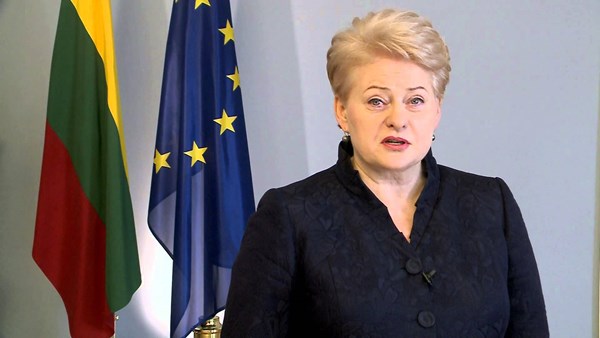Lithuanian president calls Trump’s pressure on NATO allies 'positive aggression'
On the sidelines of the NATO summit in Brussels, Lithuanian President Dalia Grybauskaitė described the pressure placed by US President Donald Trump on NATO allies with respect to defense financing as “positive aggression” which resulted in success, Interfax-Ukraine reports.
“We confirm once again that President Trump’s pressure worked. Something I call ‘positive aggression’, in a good sense,” Grybauskaitė said.
This was the Lithuanian president’s take on the unplanned meeting of NATO leaders on the Alliance’s financing, which Trump initiated. According to Grybauskaitė, those who participated in this meeting affirmed that their member states would allocate at least 2% of their GDP to defense by 2024.
The Lithuanian president emphasized that in recent years, allies had allocated $33 billion more to defense.
“For us, for Lithuania this is particularly good. There were more drills, more and better equipped armies of our partners in our country and the region,” she observed.
Nerijus Aleksiejūnas, Chief Advisor to the Lithuanian President, said that the reports by the mass media that Trump had threatened to withdraw from NATO are incorrect. He explained that the US president urged the heads of other countries to more actively increase defense expenditures and called the current situation unacceptable.
The NATO member states previously agreed to allocate 2% of their GDP to defense expenditure over the course of 10 years. Trump insists that by 2024 it must be “at least 2%”.
Earlier Trump sent a letter to the leaders of other NATO states demanding that they fulfill their obligations to increase defense expenditure. The letter was sent to the leaders of Germany, Belgium, Norway and Canada in June. In it, Trump said that he is already growing tired of waiting for them to fulfill their promises.
This year Lithuania has promised to allocate 2% of its GDP to defense. In order to do this, it may have to increase its defense budget by more than 10 million euros.
